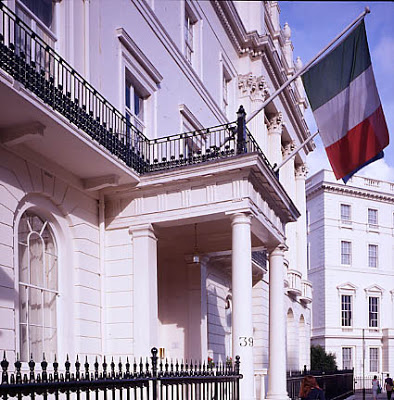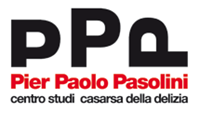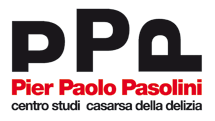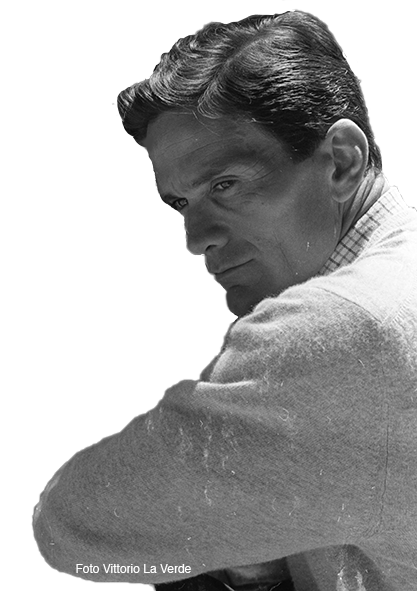Cresce in Inghilterra l’interesse per l’opera di Pasolini. Dopo la recente riflessione sul Pasolini poeta friulano tenutasi al King’s College di Londra il 22 ottobre, ne dà una ulteriore prova la giornata di studi organizzata venerdì 31 ottobre all’Istituto Italiano di Cultura attivo nella città sul Tamigi, dove si dibatterà sul tema “Attraversando i confini: Pasolini e la marginalità”. Per la cura scientifica di James Williams e Giuliana Pieri, professori alla Royal Holloway, il convegno raccoglierà alcuni dei maggiori studiosi anglo-italiani di Pasolini, oltre che della cultura e del cinema italiani del ‘900, impegnati a esplorare la parola-chiave delle periferie e della marginalità nell’opera pasoliniana. Questo aspetto, come si legge nel programma dei lavori, non solo si riferisce alla rappresentazione del sottoproletariato e delle borgate romane, ma va inteso nella sua estensione a molti sottotesti del lavoro pasoliniano, come il postcolonialismo e la sessualità alternativa. Esso riguarda inoltre anche il modo particolare in cui Pasolini si muove liberamente attraverso i confini artistici e disciplinari. Pasolini, insomma, rappresenta un nuovo tipo di artista-intellettuale europeo impegnato a sperimentare forme letterarie e visive come mezzo per affrontare tutte le aree e i livelli di indagine sociale, culturale e politica. Con l’incessante attraversamento dei confini dimostrato dal suo lavoro multimediale, Pasolini ha contribuito a ridefinire il nostro senso non solo del visivo e della visualità, ma anche dell’estetica in generale. Perciò l’obiettivo del convegno londinese, mirato in particolare al cinema di Pasolini (anche per opere meno conosciute, come Porcile del 1969), mira a rintracciare nuovi e fertili legami in tutto il corpus dell’attività pasoliniana, valorizzando anche quelle parti che hanno conosciuto una minore attenzione critica, come la poesia giovanile, l’impegno giornalistico, l’officina di un cantiere di lavoro ricco di Appunti e il progetto incompiuto della sceneggiatura di Porno-Teo-Kolossal, i dettagli del quale sono venuti alla luce di recente.

“Crossing Borders: Pasolini and Marginality”
Programma
9.30-9.45: Welcome.
Introductory Remarks: James Williams (London)
Panel 1. Chair: Giuliana Pieri (London)
9.45-10.30: Pierpaolo Antonello (Cambridge): ‘Pasolini: Homo sacer’.
10.30-11.15: Manuele Gragnolati (Oxford): ‘Pasolini’s Notes for an African Oresteia and the Paradox of Failure’.
Panel 2. Chair: Fabrizio de Donno (London)
11.15-12.00: Robert Gordon (Cambridge): ‘Pasolini and the Borders of Europe‘.
12.00-12.45: Emanuela Patti (London): ‘Disrupting borders: Pasolini, Auerbach, and the utopia of mimesis‘.
Lunch: 12.45-13.30
Panel 3. Chair: James Williams (London)
13.30-14.30: Laura Rascaroli (Cork): ‘Rage in the Margin: Sonic Interstices’.
14.30-15.30: Round-table, including John David Rhodes (Cambridge) and Clodagh Brook (Birmingham): ‘Pasolini as multi-media artist: new modes of commitment’.
Tea 15.30-16.00
[idea]Speakers[/idea]
Dr Pierpaolo Antonello (Cambridge)
Dr Antonello is University Reader in Modern Italian Culture at St John’s College, Cambridge. He specialises in twentieth-century Italian writing and intellectual history, Futurism and the Avant-Garde, literature and science, Calvino, Eco, Postmodern Italian literature, French theory and epistemology. His recent book Dimenticare Pasolini. Intellettuali e impegno nell’Italia contemporanea (2013) is part of an ongoing interest in the role of Italian intellectuals; see also Postmodern Impegno: Ethics and Commitment in Contemporary Italian Culture (2009).
Dr Fabrizio de Donno (London)
Dr de Donno is Lecturer in Italian at Royal Holloway, University of London. He is the co-editor of the special issue Colonial and Postcolonial Italy (2006), and of the volume Beyond Catholicism: Heresy, Mysticism and Apocalypse in Italian Culture (2014). He is currently completing a monograph on Italian orientalism.
Prof. Robert Gordon (Cambridge)
Prof. Gordon is Serena Professor of Modern Italian Culture at Gonville & Caius College, Cambridge. He has published widely on 20C Italian literature, cinema and cultural history. He is the author or editor of several books on the work of Primo Levi, including Primo Levi’s Ordinary Virtues, Auschwitz Report and The Cambridge Companion to Primo Levi. He is co-editor of Culture, Censorship and the State in 20th-Century Italy and his study of cultural responses to the Holocaust in Italy was published in 2012, The Holocaust in Italian Culture, 1944-2010. His work on cinema includes the books Pasolini. Forms of Subjectivity and Bicycle Thieves, DVD and Blu-ray audio commentaries on Pasolini’s Teorema and Bicycle Thieves, and articles and essays on Holocaust cinema, early film and literature, ‘Hollywood on the Tiber’, and censorship.
Prof Manuele Gragnolati (Oxford)
Manuele Gragnolati is Professor of Italian Literature and Fellow at Somerville College, Oxford, and is also Associate Director at the ICI Berlin Institute for Cultural Inquiry. A significant part of his research focuses on Dante and medieval literature and culture. He is also interested in the intersections between language and subjectivity from Dante’s Vita Nuova to the present, in modern appropriations of Dante, and in feminist and queer theory. He has published essays on medieval and modern authors from Bonvesin da la Riva and Guido Cavalcanti to Cesare Pavese, Elsa Morante, Pier Paolo Pasolini and Giorgio Pressburger. His latest book is Amor che move. Linguaggio del corpo e forma del desiderio in Dante, Pasolini e Morante (2013).
Dr Emanuela Patti (London)
Dr Patti is Visiting Fellow at the Institute of Modern Languages Research and Senior Lecturer in Media Theory at Bournemouth University. She specialises in Italian post-1945 literature and ideology, XX century metamorphoses of Dante, with a special focus on Pier Paolo Pasolini’s work and the debate on impegno and realism from the 1950s to the present. She is the author of a number of articles, including most recently ‘Pasolini, intellettuale mimetico’ in Studi Pasoliniani 7 (2013): 89-100. Her book The Politics of Representation: Pasolini’s ‘Divine Mimesis’ is forthcoming with Legenda.
Dr Giuliana Pieri (London)
Dr Pieri is Reader in Italian and the Visual Arts at Royal Holloway, London. Her research interests include visual culture in the 20th century, comparative literature and culture from the 19th to 21st centuries (notably Gabriele D’Annunzio and the Pre-Raphaelites), modern Italian literature, especially the 21C detective novel. She is the author of The Influence of Pre-Raphaelitism on fin-de-siècle Italy: Art, Beauty and Culture (2007), and (co)editor of Image and Word. Reflections of Art and Literature from the Renaissance to the Present (2005), Italian Crime Fiction (2011), The Cult of the Duce: Mussolini and the Italians from 1914 to the Present (2013). In 2010 she co-curated the exhibition Against Mussolini: Art and the Fall of a Dictator at the Estorick Collection of Modern Italian Art in London, and also co-edited the exhibition catalogue. She co-organised the international conference Antonioni and the Arts at Royal Holloway (2013) and ASMI international conference Visualising War: The Iconography of Conflict and the Italian Nation at the Galleria Nazionale d’Arte Moderna and The British School at Rome (2014).
Dr Laura Rascaroli (Cork)
Dr Rascaroli is Senior Lecturer in Film and Screen Media at University College, Cork. Her research focuses on art cinema, especially European art film, with a particular focus on the 1940s–60s and post-1989. She has published two co-authored monographs with Ewa Mazierska: From Moscow to Madrid: Postmodern Cities, European Cinema, and Crossing New Europe: Postmodern Travel and The European Road Movie. Her monograph, The Personal Camera: Subjective Cinema and the Essay Film, was the first book in English devoted to the topic. She has also co-edited the volumes The Cause of Cosmopolitanism: Dispositions, Models, Transformations (2010), with Patrick O’Donovan; Antonioni: Centenary Essays (2011), with John David Rhodes; and Amateur Filmmaking: The Home Movie, the Archive, the Web (2014), with Gwenda Young and Barry Monahan.
Dr John David Rhodes (Cambridge)
Dr Rhodes is University Lecturer in Film and other Screen Media at the University of Cambridge. He is the author of Stupendous, Miserable City: Pasolini’s Rome (2007) and a book on Maya Deren’s Meshes of the Afternoon (2011) for the BFI’s Film Classics series. He has co-edited three volumes of essays: On Michael Haneke (2010) (with Brian Price); Taking Place: Location and the Moving Image (2011) (with Elena Gorfinkel); and Antonioni: Centenary Essays (2011) (with Laura Rascaroli). He is currently finishing a book on the representation of the house in American cinema entitled The Spectacle of Property’ Also underway are a polemical monograph called Queer Pasolini and a book entitled Belaboured on style and labour, situated at the intersection of film history, aesthetic theory, and the critique of political economy. He is founding co-editor of World Picture, an online journal primarily dedicated to theoretical and philosophical approaches to media.
Professor James S. Williams (London)
James Williams is Professor of Modern French Literature and Film at Royal Holloway, London. He is the author of (among others) The Erotics of Passage: Pleasure, Politics, and Form in the Later Work of Marguerite Duras (1997), The Cinema of Jean Cocteau (2006), and Jean Cocteau (a ‘Critical Life’) (2008), and Space and Being in Contemporary French Cinema (2013) and Encounters with Godard: Ethics, Aesthetics, Politics (forthcoming 2015). He is also co-editor of The Cinema Alone: essays on the work of Jean-Luc Godard 1985-2000 (2000), Gender and French Cinema (2001), For Ever Godard: the cinema of Jean-Luc Godard (2004), Jean-Luc Godard. Documents (2006) (catalogue of the Godard exhibition held at the Centre Pompidou, Paris), and May ’68: Rethinking France’s Last Revolution (2011). He is a regular contributor to Film Quarterly (US) on European cinema (including articles on Michael Haneke, Claire Denis and Michelangelo Antonioni), and in 2011 he recorded an audio commentary for a new DVD/Blu-Ray edition of Orphée by Criterion. Most recently, in 2013, he co-organised the international conference Antonioni and the Arts at Royal Holloway. He is currently working on a new monograph project entitled The Battle Lines of Beauty: The Politics, Aesthetics, and Erotics of West African Cinema.



